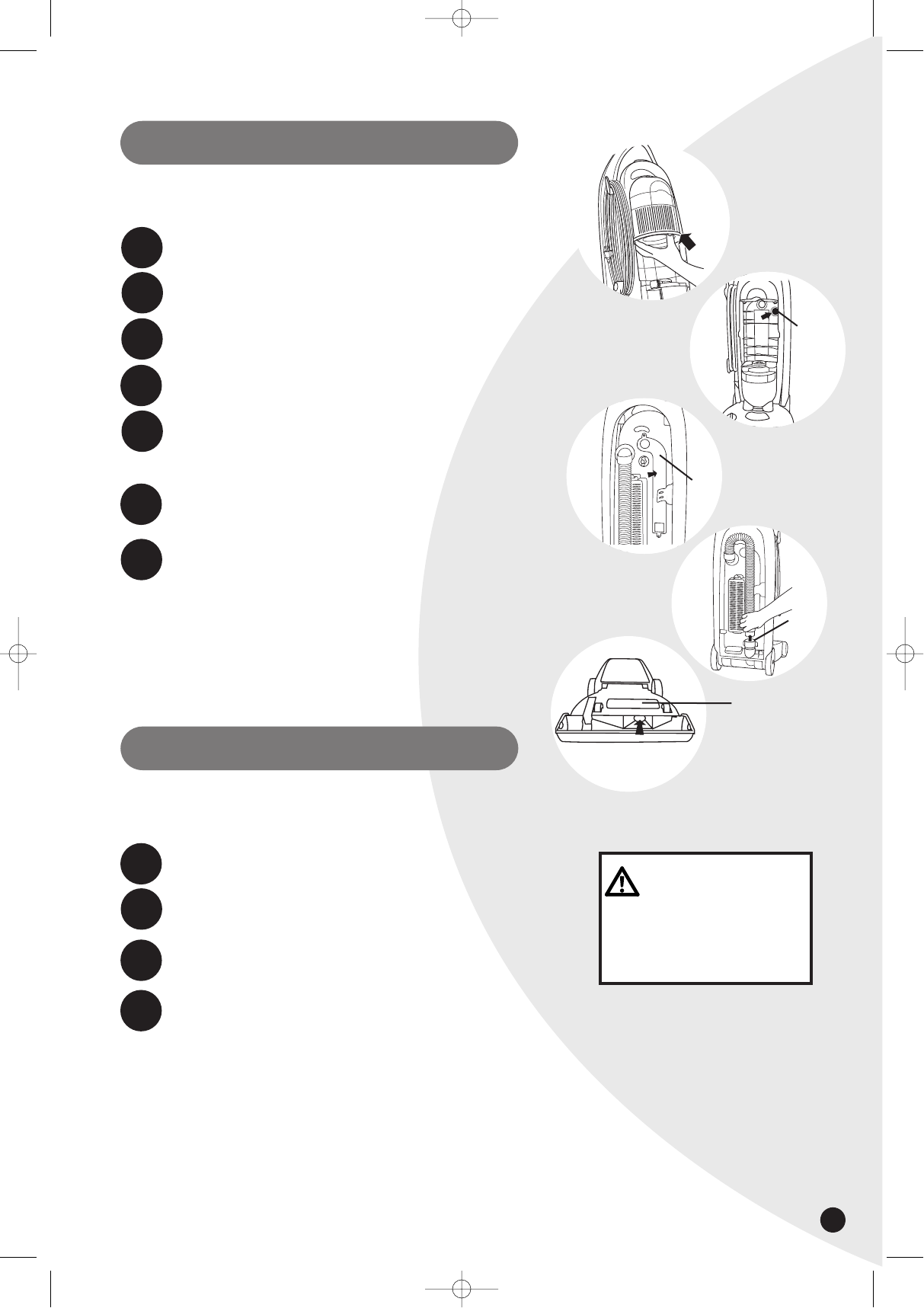
Low suction or poor pickup may be due to a clog in the vacuum cleaner. If
you notice a change in the sound of the motor or a reduction in the spinning
action, check for clogs.
Unplug cleaner from electrical outlet.
Empty Dirt Container.
Check Upper Tank for build up or clogs.
Remove the Upper Tank and check the suction inlet for a clog.
Check the clear panel on the back of the Cylinder for a clog. If there
is an obstruction, remove the screws to remove the panel and clear
this area.
Grasp the Hose Grip and lift to separate from the suction opening.
Check for a clog in the Base or the Hose.
If the clog persists, follow the instructions for Checking the Rotating
Brush on page 11 and inspect the Air Passageway for obstructions.
An internal thermal protector has been designed into your cleaner to protect
it from overheating. When the thermal protector activates, the main
vacuum motor will stop operating. If this happens, proceed as follows:
Turn the cleaner OFF (O) and unplug from electrical outlet.
Check the Upper Tank area, Pre-Motor Filter and
Post-Motor Filter for dirt accumulation.
Refer to the "Clearing Clogs" section above.
When the motor cools for approximately 30 minutes, the
thermal protector automatically resets and cleaning may continue. If
the thermal protector continues to activate after following the above
steps, your cleaner may need servicing.
NOTE: The thermal protector controls the main vacuum
motor only, not the brush motor. If the thermal protector
activates, the brush will continue to operate normally;
however, there will be no suction.
13
6.
7.
Suction
Opening
Air Passageway
Clearing Clogs
1.
2.
3.
4.
5.
Suction
Inlet
Clear
Panel
Thermal Protector
1.
2.
3.
4.
CAUTION:
To reduce the risk of
injury from moving parts,
turn Power Switch OFF
and disconnect plug from
electrical outlet.
ug603-5539_3750E_304 6/25/04 2:08 PM Page 13


















